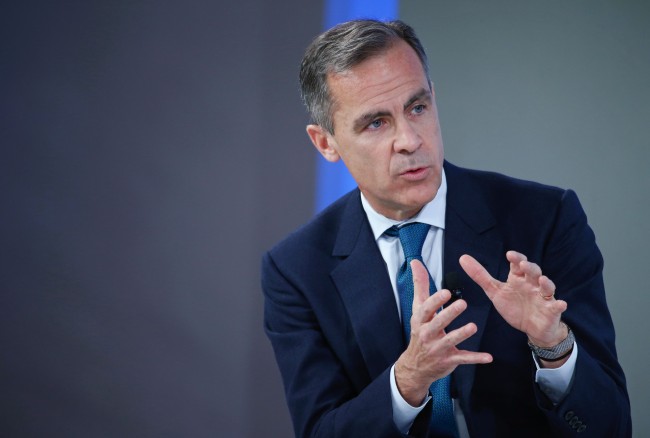Britain should prepare itself for an economic growth downgrade as the impact of the coronavirus outbreak deepens, the governor of the Bank of England has warned.
In a wide-ranging interview with Sky News, his last to be broadcast before he steps down next month, Mark Carney said the Bank had already detected a fall in activity that could imply a downgrade – but it was too early to tell how badly Britain would be affected.
Mr Carney said: “What we are picking up with some of our bigger companies and companies around the world is that supply chains… are getting a little tight. That’s lower activity.
“There’s less tourism – as you can see on our streets here in the UK. That’s lower activity as well.
“We would expect world growth would be lower than it otherwise would be, and that has a knock-on effect on the UK.”We’re not picking that up yet at all in the European and UK economic indicators, but if the world is slower than the UK, a very open economy, will have an impact.”
Mr Carney added that, given this “fast-developing situation”, the Bank is constantly monitoring UK banks to ensure they remain in good health so there is no risk of COVID-19 triggering a financial crisis.
He said: “It’s too early to tell what it means for the UK, or its magnitude.
“But the most important thing is to make sure the system is functioning. We’re very confident about that, and we’re on top of it.”
Brexit impact “too early to tell”
The governor, who will be replaced by Andrew Bailey in the middle of March, gave a qualified answer when asked whether the UK economy is in a better state than when he was appointed in 2012.
Mr Carney pointed to the stronger labour market, falling household debt and rising real wages but added that UK productivity remained weak.
When asked whether Brexit would damage the economy, he said: “I guess it’s too early to tell. I think the economy will go through a period of reorganisation.
“That will have an impact for a time. But [in the long run] it is too early to tell.
“Over the last few years the uncertainty about those relationships has weighed on business investment, which has contributed to the weakness in productivity.
“Once we have clarity or greater clarity about those people issue shifts, that adjustment process will take hold.”
After stepping down, Mr Carney is going to take up new climate roles with the United Nations and on behalf of the prime minister.
During our interview, he shot down suggestions that cutting emissions and hitting net zero would damage economic growth.
He added: “The measures that are needed in order to move towards net zero are associated with huge swaths of investment in the economy. Investment, not cost.
“BP was pointing out a couple of weeks ago there are huge opportunities in artificial intelligence and advanced materials, huge opportunities in just the way commerce is organised.
“All of those opportunities are growth.”
Mr Carney added that business leaders were telling him: “Listen, this is the greatest commercial opportunity of our time, because there’s a huge opportunity to change the way we live for the better.
“Not just in the UK but around the world. And that means UK exports and that means better jobs and higher incomes over time.”
In what might be construed as a broadside at US President Donald Trump, Mr Carney also warned that the global rules-based system had become “fragmented”.
Mr Trump has railed against institutions such as the World Trade Organisation and has stymied its operations by refusing to appoint personnel to key positions.
Mr Carney said the world was moving “from a system of multilateralism where we all had broadly similar rules, whether in trade or finance or, to some extent, in security, to a much more fragmented system”.
He added: “We have seen it in trade and while we’ve seen less of it in finance, those forces are still there.”


